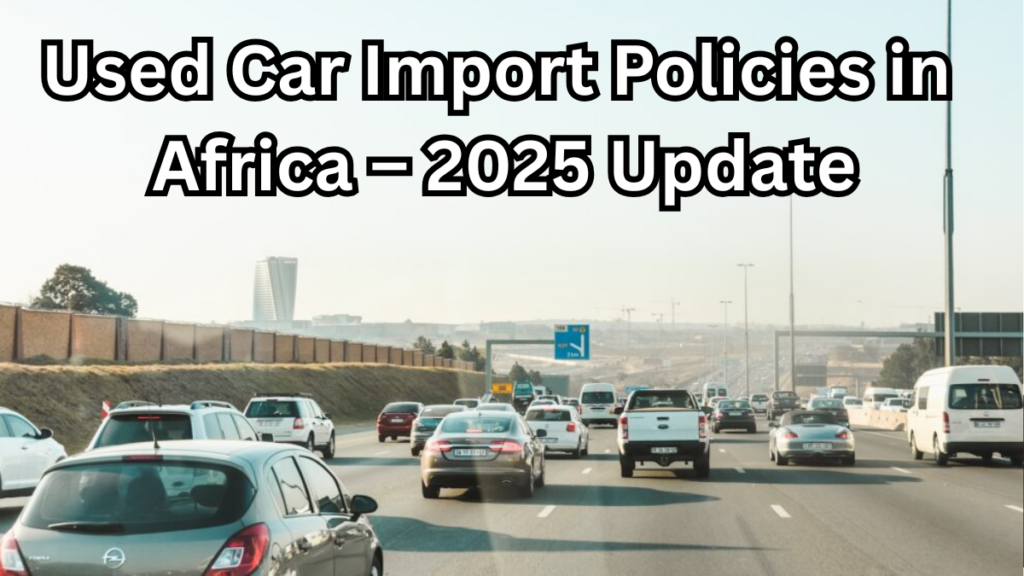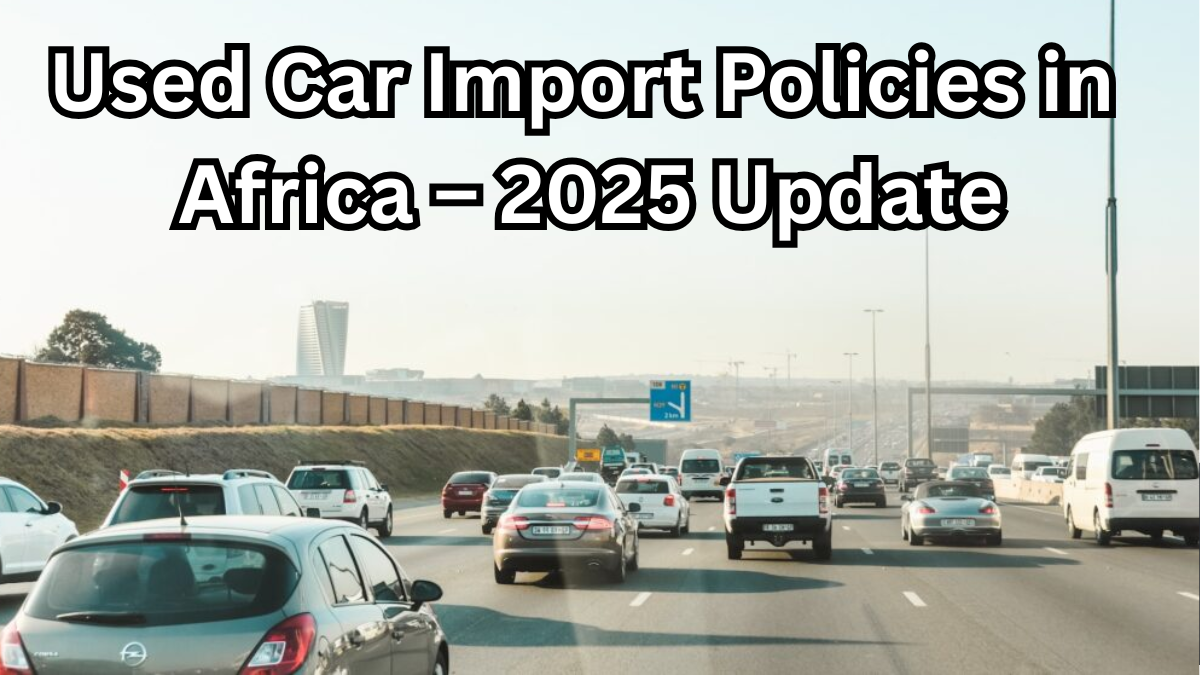As the automotive sector evolves rapidly, many African nations are tightening or revising their regulations around used car imports. From environmental concerns to boosting local industries, the motives behind these policy shifts are both diverse and strategic.
Let’s break down what’s changing across the continent in 2025.

Why African Countries Are Revisiting Import Rules
Several African governments are becoming more cautious about the uncontrolled influx of second-hand vehicles, mainly due to:
-
Environmental impact – Older cars contribute significantly to pollution
-
Road safety – Many imported vehicles don’t meet safety standards
-
Boosting local production – There’s a growing push to strengthen domestic automotive industries
-
Trade deficits – Unchecked imports put pressure on foreign reserves
2025 Policy Snapshot: Used Car Import Laws by Country
Here’s a quick look at how different African nations are handling used car imports in 2025:
| Country | Current Import Policy (2025) | Notable Changes / Restrictions |
|---|---|---|
| Nigeria | Ban on vehicles older than 12 years | Shifted from 15 to 12 years max |
| Kenya | Import ban on cars over 8 years old | Enforced stricter emissions standards |
| Ghana | Bans cars older than 10 years; penalties for non-compliance | Focus on cleaner energy vehicles |
| South Africa | Imports of used cars largely restricted except special permits | Domestic industry incentives expanded |
| Ethiopia | Heavy restrictions on all second-hand vehicles | Promoting electric vehicles (EVs) instead |
| Morocco | Prioritizes new vehicles and local production | Strong import duties discourage used cars |
Key Trends in 2025
The continent-wide approach may vary, but several trends are emerging:
-
Younger car age limits: Countries are reducing the maximum age of imported vehicles to 8–12 years
-
Increased import duties: Some nations are raising tariffs to discourage imports
-
Transition to EVs: Governments are using policies to encourage electric vehicle adoption instead
-
Encouraging local assembly: Through partnerships and tax breaks, African nations are enticing carmakers to assemble vehicles locally
What This Means for Consumers
If you’re planning to buy or import a used car in Africa, here’s what to keep in mind:
-
Do your research: Rules vary drastically from country to country
-
Expect higher costs: With tighter policies and possible import bans, second-hand cars might be more expensive
-
Check for emissions and safety compliance: Many governments are introducing strict inspection guidelines
-
Look for local options: Domestic used car markets are expanding to fill the gap
FAQs
Q1. Why are African countries restricting second-hand vehicle imports?
A: Primarily to reduce environmental pollution, ensure road safety, and encourage the growth of local vehicle industries.
Q2. Are all African countries implementing an import ban on used cars?
A: Not all. While some nations have enforced strict bans, others allow imports with age or condition restrictions.
Q3. Will these rules affect the affordability of cars in Africa?
A: Likely yes. Stricter policies and tariffs may raise the cost of used car imports in Africa, especially for low-income buyers.
Q4. Can electric second-hand vehicles still be imported?
A: Yes, in many cases. In fact, some countries are encouraging EV imports over traditional fuel vehicles to support green mobility goals.
Final Thoughts
Africa’s 2025 update on used car imports is a clear sign of the continent’s push toward cleaner, safer, and more self-reliant transportation. While the move may disrupt current buying trends, it also presents opportunities for innovation in local assembly and green mobility.
As import bans tighten, staying informed and planning ahead will be crucial for consumers and businesses alike.
Click here to learn more
Sachin is a dedicated writer specializing in education, career, and recruitment topics, delivering clear and actionable insights to empower readers.
